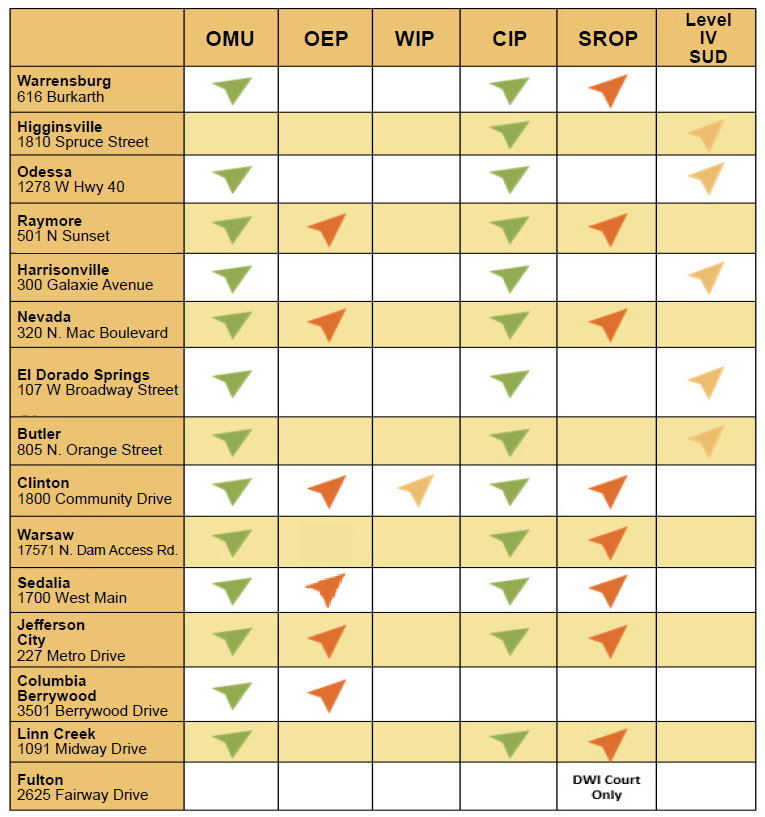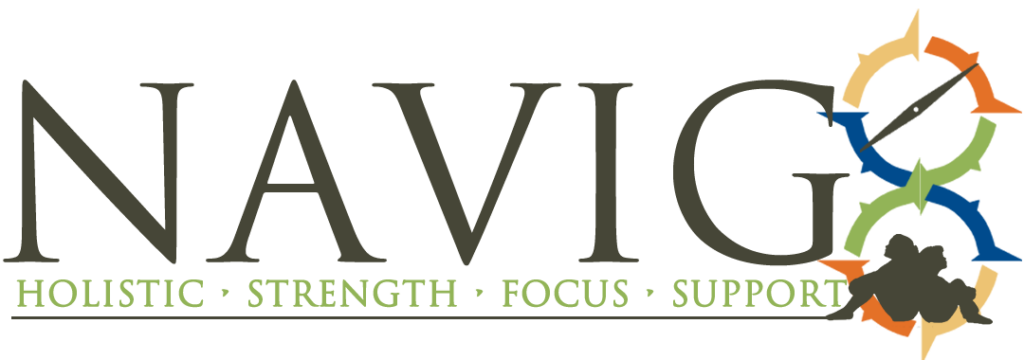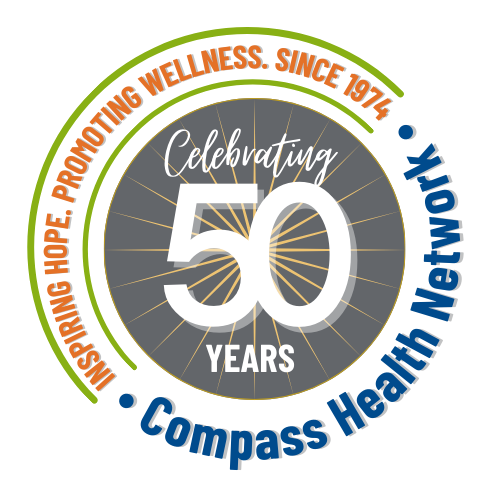Substance Awareness Traffic Offender Program (SATOP)
Substance Awareness Traffic Offender Program (SATOP)
OFFENDER EDUCATION PROGRAM (OEP)
WEEKEND INTERVENTION PROGRAM (WIP)
WIP is conducted in 48-consecutive hours in a restrictive environment over the course of a weekend. This program is designed for repeat or “high risk” offenders and first-time offenders using intensive education, small group processes and individual counseling.
CLINICAL INTERVENTION PROGRAM (CIP)
CIP is an outpatient program designed for people who have not succeeded in making positive choices related to driving while intoxicated. This level of SATOP consists of a 50-hour program, completed in a minimum of five weeks, that includes individual counseling, group counseling, and group education
LEVEL IV OR SERIOUS AND REPEAT OFFENDER PROGRAM (SROP)
SROP is a 75-hour, intensive outpatient intervention program based on the needs of persistent or assessed “high risk” offenders. This program is designed to be completed in a minimum of 90 days. Services will include individual counseling, group counseling, group education, and substance use testing.
SATOP LOCATIONS AND SERVICES

Residential Services for Adults
Residential Services for Adults
Inpatient programming is provided in a safe, comfortable, and healthy environment and includes:
- Comprehensive assessment
- Co-occurring mental health services
- Psychiatry including Medication-Assisted Treatment
Compass Health Network’s treatment model for customers with substance use and co-occurring Substance Use Disorder/Mental Illness (SUD/MI) disorders is based on the premise that addiction has a biological, psychological, and social basis and requires a holistic approach. Our model further recognizes a broad range of services and approaches must be provided to meet the specific treatment needs of each individual.
- Individual, family and co-dependent counseling
- Group counseling
- Group education
- Peer Support
- Person-centered integrated care
- Transitional housing referrals if indicated by assessment.
ADULT TREATMENT CENTERS
Missouri
- Cedar Recovery Center – Linn Creek
- Clinton Residential and Transitional Treatment Center – Clinton
- McCambridge Women and Children’s Center – Columbia
- Truman Lake Women and Children’s Center – Clinton
- Warrensburg Recovery Center – Warrensburg
Opioid Treatment Program
Opioid Treatment Program
Over the past 35 years, medication assisted treatments have helped millions of people recover from the endless ups and downs of opioid use. Treatment can improve the health of the individual, as well as, improve relationships and their ability to maintain employment, and/or return to school. They gain healthier and happier family and social lives. Ultimately…feeling better about themselves.
A comprehensive wellness approach assists the individual to stabilize, feel relief from withdrawal symptoms, and establish and maintain recovery. When a person participates in a recovery program, they are taking steps toward managing their substance use and regaining a healthy life.
BENEFITS OF OPIOID TREATMENT PROGRAM
- Medication manages opioid withdrawal symptoms
- Methadone is only offered at a specialized Opioid Treatment Program
- Daily dispensing of methadone and other medications when recommended
- Medication provided onsite
Individualized service approach - Defined criteria for program progression to decrease daily dispensing
COMPREHENSIVE WELLNESS APPROACH
- Individual Counseling
- Group Education and Group Counseling
- Overdose Education and Narcan Kits
- Integrated Health Specialists provide support and education in the community and connection to community resources
- Peer Specialists share their lived experience and provide information and support in accessing community recovery meetings
Early Intervention for Adults
Early Intervention for Adults
BRIEF INTERVENTION – LEVEL 1
- Four-week individual program
- Brief screening
- 4 Individual Counseling Sessions
ALCOHOL AND DRUG AWARENESS – LEVEL 2
- Five-week group program
- Brief screening
- 10 hours of group education
CHOICES PROGRAM – LEVEL 3
- Eight-week combination – group and individual program
- Brief screening
- 2 individual counseling sessions
- 16 hours of group education
Adolescent Substance Use Disorder / Alcohol & Drug Treatment – NAVIG8
Adolescent Substance Use Disorder / Alcohol & Drug Treatment – NAVIG8
serving adolescents from 12 to 17 years old living with substance use disorder.
Navig8 serves adolescents and families whose lives have been impacted by the use of alcohol and/or other substances. The program serves adolescents from ages 12 through 17 and is structured to meet the specific needs of the adolescent and his or her family.
We use a treatment team approach comprised of professionals from all degrees, licensures, and certifications. The treatment team incorporates all significant community and family members needed to support the adolescent’s success.
Our program is based on the 8 Dimensions of Wellness (emotional, environmental, spiritual, financial, intellectual, social, occupational, physical) while:
- Focusing on the special needs of adolescents
- Recognizing each person’s needs
- Engaging the family
- Ensuring services are client driven
- Challenging the youth to achieve success in family relationships and academic performance.

SERVICES INCLUDE
- Comprehensive assessment
- Individual counseling
- Family counseling/family groups
- Group education/group counseling
- Case management
- Community support
- Trauma counseling
- Co‐occurring counseling
- Psychiatry
LOCATIONS
- Columbia, MO (Outpatient only)
- Rolla, MO
Adolescent and Adult Outpatient Treatment Services
Adolescent and Adult Outpatient Treatment Services
- Comprehensive assessment
- Co-occurring mental health services
- Psychiatry including Medication-Assisted Treatment (MAT) is delivered by a psychiatrist specially trained to use FDA-approved medications in combination with counseling and other behavioral therapies to provide a “whole-patient” approach to the treatment of substance use disorders Compass Health Network’s treatment model for customers with substance use and co-occurring Substance Use Disorder/Mental Illness (SUD/MI) disorders is based on the premise that addiction has a biological, psychological, and social basis and requires a holistic approach. Our model further recognizes a broad range of services and approaches must be provided to meet the specific treatment needs of each individual.
- Individual, family and co-dependent counseling
- Group counseling
- Group education
- Peer Support
- Person-centered integrated care
